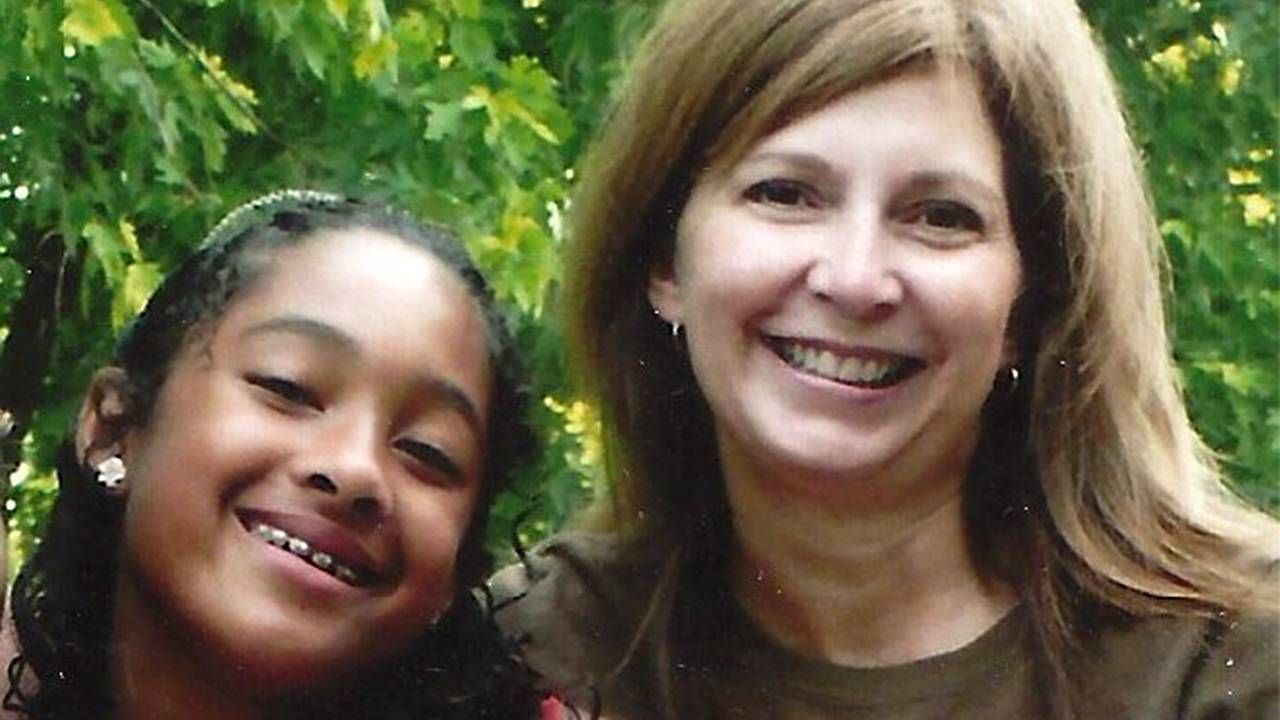What My Granddaughter Taught This White Grandmother About Race
Through her experiences, I am learning that I must speak up on the issue of race
Editor’s note: This article contains mentions of overt racism.
I had never really given much thought to the issue of race until my then 4-year-old biracial granddaughter stated to her mother, my daughter, "I wish I were white like you." When my daughter retold this conversation, I felt a tangle of questions catch in my throat. What would make a 4-year-old child want for such a thing? What had she learned or experienced in her short time on earth to make her wish for whiteness?

Perhaps she had experienced colorism, witnessing her light-skinned playmates treated differently than her dark-skinned playmates. Perhaps she had noticed how her 2-year-old brother could pass as white without really understanding what white passing meant. Or perhaps she watched television shows with white families and wondered where all the Black families live. She was perceptive for a 4-year-old.
That was nearly 15 years ago. She's now 19, and grown into her womanhood and her Blackness, proud of her heritage. But still, there continue to be experiences of trauma.
Because I am white, I've never been targeted because of my race and have no stories to pass down of our family's experiences with overt racism.
On a recent trip south to our former home in Arkansas, some local kids called her the N-word. She was with her white mother and white passing brothers, but they saw her as the only Black person in the group and wanted to make their racism known. She was shocked, frightened. This episode of overt racism left her shaken.
My Granddaughter's Experiences
"I don't ever want to go back," she said as she told me of her experience on her return home. "You don't have to go back," I told her. But I knew that wouldn't solve the larger, systemic problem of racism and how it would continue to impact her. For the rest of her life, she will be the target of both overt and covert racism, and those traumatic experiences will be a part of her life story.
She is one-half white and one-half Black, but here is the truth. She is Black. She has grown to understand she is perceived as Black. If she travels to the rural South to visit her aunts and uncles, she may not be waited on as fast in some restaurants. She may find that some boys' parents do not want her to date their sons. She understands that she will experience racism.
The Shame of My Family's Racist Acts
Because I am white, I've never been targeted because of my race and have no stories to pass down of our family's experiences with overt racism.
My experience is similar to that of many white boomers who grew up in the '60s; I was raised by Depression-era-born parents who didn't recognize their racism. They had dear friends who were Black, who were invited into our home for meals and games, but my father also told me, "If you ever come home with a Black boyfriend, that will be the last thing you ever do."
After our move to the South, my father flew a Confederate flag on the 4th of July because he thought it was unique. When it made my mother squirm in her silence, he told her that it didn't matter anyway because "there were no Black people where we lived."
Now I understand, of course it mattered. It matters now, the flag, a violent symbol of slavery and white supremacy. I see firsthand how these racist images and slurs psychologically impact my granddaughter. Childhood memories of my family's racist and bigoted acts fill me with shame.
Raising My Own Voice
But my white shame means nothing to those my family's actions have hurt. My white guilt — our white guilt — only helps to ease our own conscience. I hadn't given much thought to racism until I had a Black granddaughter because my white privilege allowed me to ignore it, which is only another form of racism.
I'm learning to challenge others' — and my own — deeply embedded biased and bigoted views.
I was once told by a former writing professor, "Until you write about race, you really haven't written about anything." I assume that many white people probably don't believe, like me, that they have anything to say about race. But I'm learning that we must use our voices, to combat racist and bigoted behavior.
My ex, my daughter's father, once laughingly bragged that as a teen he had donned a white sheet and burned a cross to run a Black family out of our small southern town. I was uncomfortable — and I was silent. I was like my mother when my father flew the Confederate flag, a silent witness to a racist act.
I can no longer remain silent. It's not enough to "like" a Facebook post or reshare images of another racial injustice on social media, inserting "sad face." I'm learning through my granddaughter's experiences about the urgent need to speak up now.
She needs my voice, whether it's telling the man at the local QuikTrip his racist joke was offensive or explaining to a former high school friend she should actually reconsider some of her bigoted assumptions. I'm learning to challenge others' — and my own — deeply embedded biased and bigoted views. It's small, it's imperfect, but a start.
I must help my granddaughter by recognizing my own family's racist actions, to be aware — to own — my unearned white privilege.

